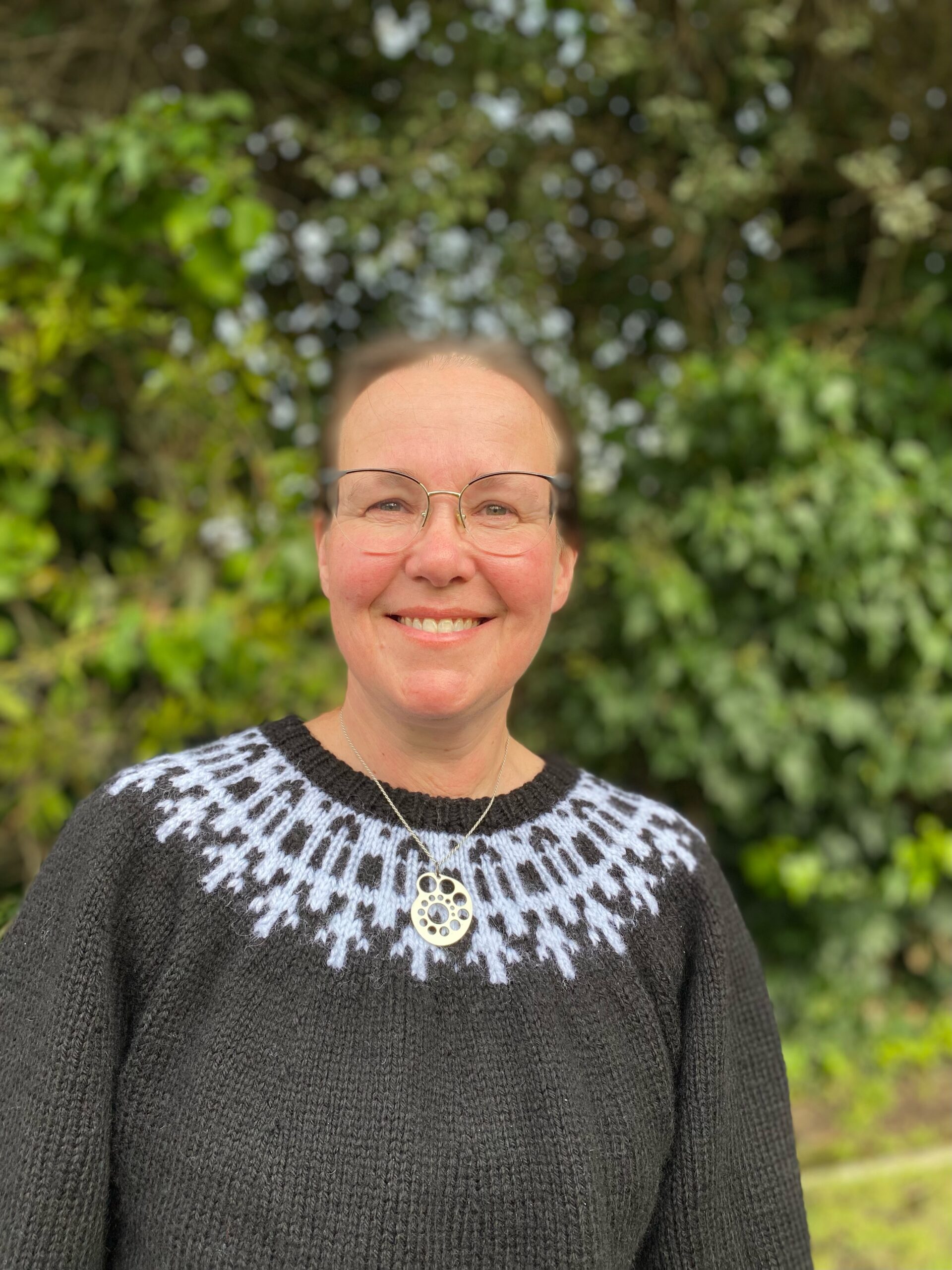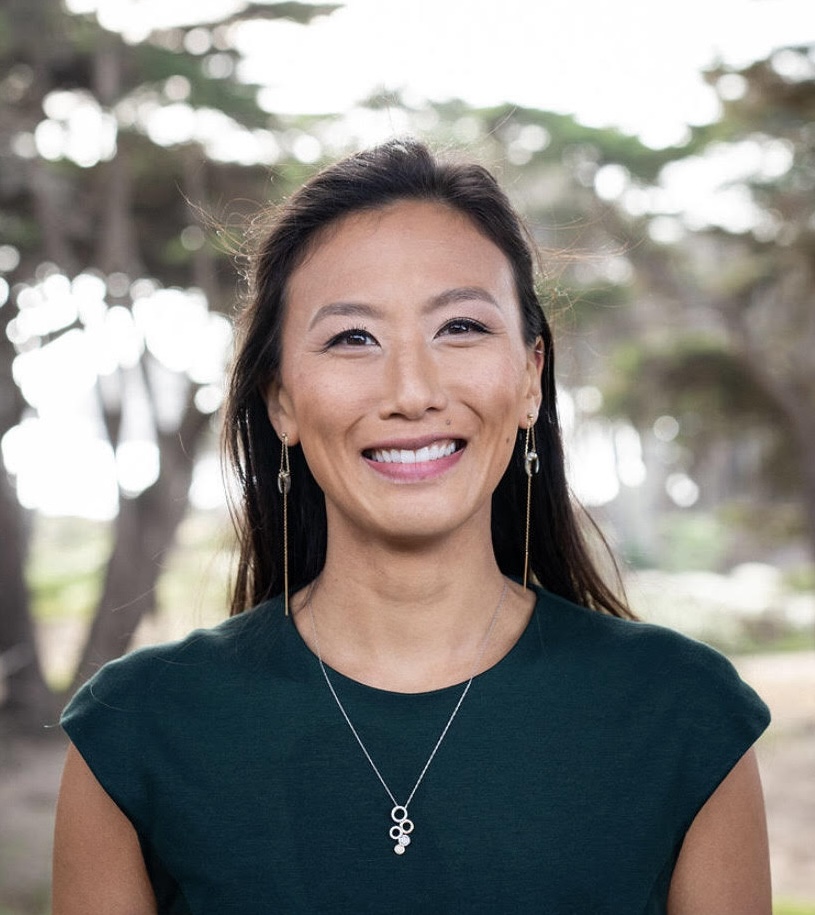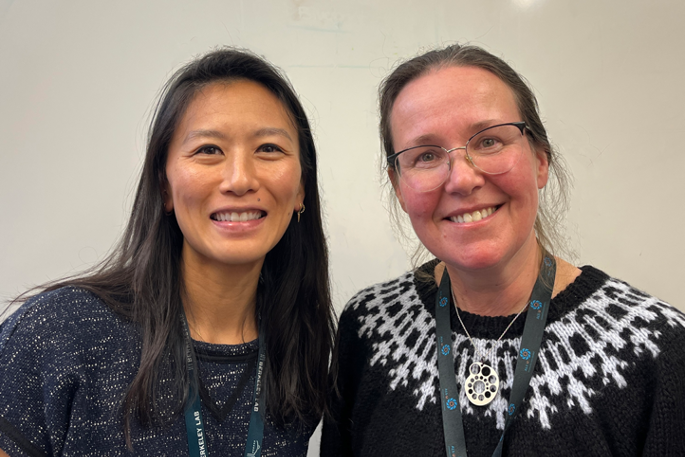Q: Ina, looking back on your tenure as chair of the Women’s Support and Empowerment Council (WSEC), what are the top things you’re most proud of achieving?

Ina Reichel, Accelerator Technology and Applied Physics Division
Ina Reichel: Over the years, thanks to lobbying from WSEC, maternity and parental leave benefits have greatly improved. The latest change in that area was the Lab agreeing to keep the “old” four-week paid parental leave available for employees not qualifying for the “new” eight weeks of paid leave for bonding offered through UC.
The other achievement I am proud of stems from my time as co-chair of the policy subcommittee of WSEC. Women at the Lab have told us at our informal in-person lunchtime gatherings and other events about experiencing micro-aggressions at the Lab. But, when we brought up micro-aggressions with others, it was clear that not everyone shared that experience. Some people believed it wasn’t happening at the Lab and that we were better than that. So, we wanted to inform people using data. In 2018, we surveyed WSEC members, and out of the 59 respondents, somewhere between two-thirds and three-quarters had experienced the most frequently mentioned microaggressions, such as frequently being interrupted in meetings. After that, Lab management understood it was an issue, and upstander training became available.
Q: How has Lab changed during your leadership related to IDEA?
Ina: I think IDEA principles have become more critical, and at least in some parts of the Lab, more “built-in” than in the past. We went from DEI, diversity, equity, and inclusion to IDEA, adding accountability to inclusion, diversity, and equity. After over a decade of getting used to starting meetings with a safety minute, many people expect meetings now to include an IDEA minute. Another change is having a Lab director who believes in the importance of IDEA. He moved the IDEA office out of HR and directly underneath the directorate, giving it more visibility.
Also, I have seen more ERGs established at the Lab and, at the same time, more collaboration between ERGs. Intersectional issues get tackled by working groups with members from two or more ERGs, lightening the load for individuals wishing to work on that issue and building strong networks across the Lab.
Q: Are there any lessons or insights you gained that you’d like to share with Vanessa as she takes on the role?
Ina: Women are expected and trained to be nice, friendly, and kind. People don’t like it if we come across as aggressive or demanding. But sometimes, you need to be the squeaky wheel. Yes, that doesn’t make you particularly popular around the Lab or with leadership, but it might be necessary if years of being friendly and gently asking for something gets you nowhere. But always start by asking nicely while having supporting documentation or data.
Over the years, I have also learned that you get nowhere if you come up with warm and fuzzy arguments. You need to educate scientists with data, as that’s something they understand, even if it is from a different discipline than theirs.
Q: Vanessa, what motivated you to take on the role of chair of WSEC?

Vanessa Hsia-Kiung, Intellectual Property Office
Vanessa Hsia-Kiung: I first learned about the WSEC when I joined the Lab in 2021, and I saw it as a way to connect with colleagues across different parts of the organization. I quickly learned that this ERG is much more than a great group of women and allies looking to collaborate and connect; it is a network of passionate colleagues committed to advocating for, amplifying, empowering, and promoting women through a massive amount of dedication and behind-the-scenes efforts.
Shortly after joining the WSEC, I became the policy subcommittee co-chair, and it was one of the most intense yet rewarding experiences of my professional career. Right off the bat, I found myself in the midst of an initiative to champion the reinstatement of the Lab’s paid parental leave (PPL) benefit that Ina mentioned. With the benefit of an immense amount of advocacy work the policy subcommittee had already done, we were able to engage with our executive sponsors, Carol Burns and Henrik von der Lippe, who helped us move the initiative forward through conversations with HR, our senior leaders, and the DOE Berkeley Site Office. Ultimately, we were successful in reinstating PPL. I was so inspired and motivated by the impact groups like the WSEC can have at the Lab.
Moving from the policy subcommittee to the role of chair was tough because there are so many important initiatives our policy group is involved in. Ultimately, I’m excited the stellar WSEC leadership group will expand, and I’m honored to take on the role of chair – plus, Ina has promised she isn’t going anywhere!
Q: What are your short-term and long-term goals for WSEC?
Vanessa: The WSEC is the longest-standing ERG at Berkeley Lab, and I am in awe of what it has accomplished. I hope we continue to be a nexus of empowerment, networking, and advocacy for women and all colleagues at the Lab in the near term. In the longer term, I hope we find ways to collaborate with all the Lab’s ERGs to become trusted partners and advisors to leadership in diversity, inclusion, and equity efforts.
Q: Finally, since this year’s International Women’s Day theme is “Inspire Inclusion,” what actions do you think people can take to foster inclusivity and empower women at the Lab?
Vanessa: As with any shift, fostering inclusivity requires internal and external change. It sounds so simple, but I think the root of inclusion is empathy. We need to find ways to understand others, which is the internal action. And I think a good day-to-day external action is to be aware of our own biases and help others become aware of biases they might hold. Ask ourselves and each other: “What preconceived assumptions am I bringing to this interaction?”
Ina: I know I am harping on micro-aggressions, but their cumulative effect is detrimental to women’s advancement; it’s death by a thousand papercuts. I think if we can all educate ourselves about this subject and become upstanders, not just for women but for other minorities, the Lab will be a more inclusive place, and women will feel empowered.
